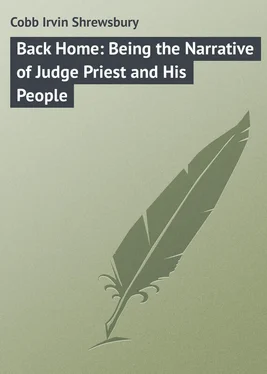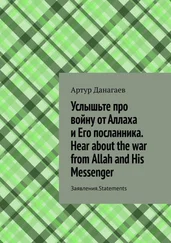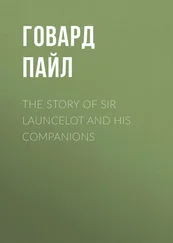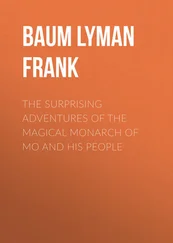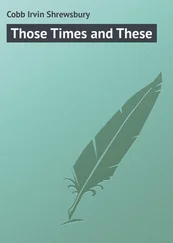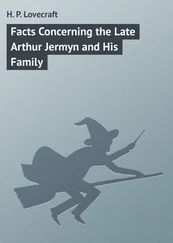Irvin Cobb - Back Home - Being the Narrative of Judge Priest and His People
Здесь есть возможность читать онлайн «Irvin Cobb - Back Home - Being the Narrative of Judge Priest and His People» — ознакомительный отрывок электронной книги совершенно бесплатно, а после прочтения отрывка купить полную версию. В некоторых случаях можно слушать аудио, скачать через торрент в формате fb2 и присутствует краткое содержание. Жанр: foreign_prose, на английском языке. Описание произведения, (предисловие) а так же отзывы посетителей доступны на портале библиотеки ЛибКат.
- Название:Back Home: Being the Narrative of Judge Priest and His People
- Автор:
- Жанр:
- Год:неизвестен
- ISBN:нет данных
- Рейтинг книги:3 / 5. Голосов: 1
-
Избранное:Добавить в избранное
- Отзывы:
-
Ваша оценка:
- 60
- 1
- 2
- 3
- 4
- 5
Back Home: Being the Narrative of Judge Priest and His People: краткое содержание, описание и аннотация
Предлагаем к чтению аннотацию, описание, краткое содержание или предисловие (зависит от того, что написал сам автор книги «Back Home: Being the Narrative of Judge Priest and His People»). Если вы не нашли необходимую информацию о книге — напишите в комментариях, мы постараемся отыскать её.
Back Home: Being the Narrative of Judge Priest and His People — читать онлайн ознакомительный отрывок
Ниже представлен текст книги, разбитый по страницам. Система сохранения места последней прочитанной страницы, позволяет с удобством читать онлайн бесплатно книгу «Back Home: Being the Narrative of Judge Priest and His People», без необходимости каждый раз заново искать на чём Вы остановились. Поставьте закладку, и сможете в любой момент перейти на страницу, на которой закончили чтение.
Интервал:
Закладка:
Cobb Irvin S. Irvin Shrewsbury
Back Home: Being the Narrative of Judge Priest and His People
PREFACE
AFTER I came North to live it seemed to me, as probably it has seemed to many Southern born men and women that the Southerner of fiction as met with in the North was generally just that – fiction – and nothing else; that in the main he was a figment of the drama and of the story book; a type that had no just claim on existence and yet a type that was currently accepted as a verity.
From well meaning persons who apparently wished to convey an implied compliment for the southern part of this republic I was forever hearing of “southern pride” and “hot southern blood” and “old southern families,” these matters being mentioned always with a special emphasis which seemed to betray a profound conviction on the part of the speakers that there was a certain physical, tangible, measurable distinction between, say, the pride of a Southerner and the blood-temperature of a Southerner and the pride and blood heat of a man whose parents had chosen some other part of the United States as a suitable place for him to be born in. Had these persons spoken of things which I knew to be a part and parcel of the Southerner’s nature – such things for example as his love for his own state and his honest veneration for the records made by men of southern birth and southern blood in the Civil War – I might have understood them. But seemingly they had never heard of those matters.
I also discovered or thought I discovered that as a rule the Southerner as seen on the stage or found between the covers of a book or a magazine was drawn from a more or less imaginary top stratum of southern life, or else from a bottom-most stratum – either he purported to be an elderly, un-reconstructed, high-tempered gentleman of highly aristocratic tendencies residing in a feudal state of shabby grandeur and proud poverty on a plantation gone to seed; or he purported to be a pure white of the poorest. With a few exceptions the playwright and the story writers were not taking into account sundry millions of southern born people who were neither venerable and fiery colonels with frayed wrist bands and limp collars, nor yet were they snuffdipping, ginseng-digging clay-eaters, but just such folk as allowing for certain temperamental differences – created by climate and soil and tradition and by two other main contributing causes: the ever-present race question and the still living and vivid memories of the great war – might be found as numerously in Iowa or Indiana or any other long-settled, typically American commonwealth as in Tennessee or Georgia or Mississippi, having the same aspirations, the same blood in their veins, the same impulses and being prone under almost any conceivable condition to do the same thing in much the same way.
Viewing my own state and my own people across the perspective of time and distance I had the ambition to set down on paper, as faithfully as I might, a representation of those people as I knew them. By this I do not mean to declare that I sensed any audible and visible demand for such a piece of writing; so far as I know there has been no such demand. It was my own notion solely. I wanted, if I could to describe what I believed to be an average southern community so that others might see it as I had seen it. This book is the result of that desire.
For my material I draw upon the life of that community as I remembered it. Most of the characters that figure in the events hereinafter described were copies, to the best of my ability as a copyist, of real models; and for some of the events themselves there was in the first place a fairly substantial basis of fact.
Having such an aim I wrote what I conceived to be a series of pictures, out of the life of a town in the western part of Kentucky; that part of Kentucky which gave to the nation among others, Abraham Lincoln and Jefferson Davis. These, pictures fell into the form of inter-related stories, and as such were first printed in the Saturday Evening Post. They are now offered here as a whole.
I. WORDS AND MUSIC
WHEN Breck Tandy killed a man he made a number of mistakes. In the first place, he killed the most popular man in Forked Deer County – the county clerk, a man named Abner J. Rankin. In the second place, he killed him with no witnesses present, so that it stood his word – and he a newcomer and a stranger – against the mute, eloquent accusation of a riddled dead man. And in the third place, he sent north of the Ohio River for a lawyer to defend him.
On the first Monday in June – Court Monday – the town filled up early. Before the field larks were out of the grass the farmers were tying their teams to the gnawed hitch-racks along the square. By nine o’clock the swapping ring below the wagonyard was swimming in red dust and clamorous with the chaffer of the horse-traders. In front of a vacant store the Ladies’ Aid Society of Zion Baptist Church had a canvas sign out, announcing that an elegant dinner would be served for twenty-five cents from twelve to one, also ice cream and cake all day for fifteen cents.
The narrow wooden sidewalks began to creak and chum under the tread of many feet. A long-haired medicine doctor emerged from his frock-coat like a locust coming out of its shell, pushed his high hat off his forehead and ranged a guitar, sundry bottles of a potent mixture, his tooth-pulling forceps, and a trick-handkerchief upon the narrow shelf of his stand alongside the Drummers’ Home Hotel. In front of the little dingy tent of the Half Man and Half Horse a yellow negro sat on a split-bottom chair limbering up for a hard day. This yellow negro was an artist. He played a common twenty-cent mouth organ, using his left hand to slide it back and forth across his spread lips. The other hand held a pair of polished beef bones, such as end men wield, and about the wrist was buckled a broad leather strap with three big sleigh-bells riveted loosely to the leather, so that he could clap the bones and shake the bells with the same motion. He was a whole orchestra in himself. He could play on his mouth organ almost any tune you wanted, and with his bones and his bells to help out he could creditably imitate a church organ, a fife-and-drum corps, or, indeed, a full brass band. He had his chair tilted back until his woolly head dented a draggled banner depicting in five faded primary colon the physical attractions of the Half Man and Half Horse – Marvel of the Century – and he tested his mouth organ with short, mellow, tentative blasts as he waited until the Marvel and the Marvel’s manager finished a belated breakfast within and the first ballyhoo could start. He was practicing the newest of the ragtime airs to get that far South. The name of it was The Georgia Camp-Meeting.
The town marshal in his shirt sleeves, with a big silver shield pinned to the breast of his unbuttoned blue waistcoat and a hickory stick with a crook handle for added emblem of authority, stalked the town drunkard, fair game at all seasons and especially on Court Monday. The town gallant whirled back and forth the short hilly length of Main Street in his new side-bar buggy. A clustering group of negroes made a thick, black blob, like hiving bees, in front of a negro fishhouse, from which came the smell and sounds of perch and channel cat frying on spitting-hot skillets. High up on the squat cupola of the courthouse a red-headed woodpecker clung, barred in crimson, white, and blue-black, like a bit of living bunting, engaged in the hopeless task of trying to drill through the tin sheathing. The rolling rattle of his beak’s tattoo came down sharply to the crowds below. Mourning doves called to one another in the trees round the red-brick courthouse, and at ten o’clock, when the sun was high and hot, the sheriff came out and, standing between two hollow white pillars, rapped upon one of them with a stick and called upon all witnesses and talesmen to come into court for the trial of John Breckinridge Tandy, charged with murder in the first degree, against the peace and dignity of the commonwealth of Tennessee and the statutes made and provided.
Читать дальшеИнтервал:
Закладка:
Похожие книги на «Back Home: Being the Narrative of Judge Priest and His People»
Представляем Вашему вниманию похожие книги на «Back Home: Being the Narrative of Judge Priest and His People» списком для выбора. Мы отобрали схожую по названию и смыслу литературу в надежде предоставить читателям больше вариантов отыскать новые, интересные, ещё непрочитанные произведения.
Обсуждение, отзывы о книге «Back Home: Being the Narrative of Judge Priest and His People» и просто собственные мнения читателей. Оставьте ваши комментарии, напишите, что Вы думаете о произведении, его смысле или главных героях. Укажите что конкретно понравилось, а что нет, и почему Вы так считаете.
